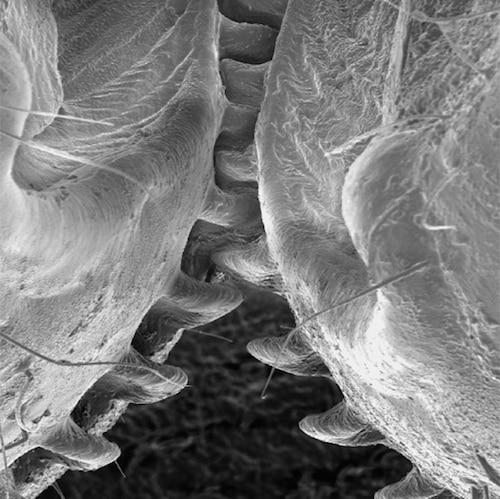 Evolution
Evolution
 Intelligent Design
Intelligent Design
Why Does Biology Still Have the Ability to Surprise Us?

About forty years ago, a biochemistry professor told my class that now that the genetic code had been worked out and the lac operon discovered, the only thing left for us students was to work out the details. Boy, was he wrong!
If there’s one thing I’ve learned over the last forty years, it is that every ten years or so the biological apple cart is upset, and a long-established “fact,” an assumption based on incomplete knowledge, is proven to be wrong.
I am sure you can find textbooks that still include some of these old “facts.” Below is a partial list of those assumptions that have had to be revised, and some that are still under discussion.
1. Old fact: DNA is stable and genes don’t hop around.
New discovery: Mobile genetic elements can hop from place to place in the DNA, duplicating themselves and changing gene expression. Sometimes they carry surrounding genes with them.
2. New “old” fact: Mobile genetic elements are selfish DNA that replicate themselves without benefit to the organism, thus cluttering the genome with garbage.
New discovery: Mobile genetic elements appear to be involved in the regulation of many important genes, and their distribution in the genome is nonrandom.
3. Old fact: A gene is an uninterrupted stretch of DNA that encodes a single protein. Genes are arranged like beads on a string.
New discovery: Genes in eukaryotes are interrupted, sometimes multiple times, by non-coding sequences called introns. The introns get spliced out of the messenger RNA before the message is translated. Because of splicing, one gene can produce many different but related proteins.
New discovery: Genes can overlap one another on the same stretch of DNA, on the same strand or on opposite strands. Thus one piece of DNA can produce multiple different proteins.
Take home message: 1 stretch of DNA ? 1 gene ? 1 protein
4. Old fact: There are only 3 forms of RNA: messenger RNA, transfer RNA, and ribosomal RNA.
New discovery: New classes of short and long RNA transcripts serve to regulate gene expression.
5. Old fact: Pseudogenes are useless broken remnants of former genes.
New discovery: Not all pseudogenes are useless. Pseudogenes can be transcribed, and their products can be used to regulate the expression of their full-length sister genes. Related to #4.
6. Old fact: The genome is full of junk, the remnants of wasteful evolutionary processes and selfish DNA (see #1, #2 and #5 above).
New discovery: “Junk” DNA isn’t junk after all. It has many important regulatory functions in the cell.
Revolutionary discoveries like these often happen when someone tries something new, stumbles across some contrary evidence, and begins to question the validity of an established “fact.” The results have been astonishing — and have even won the Nobel Prize. Because of these discoveries we have gained a new and better, though still imperfect understanding of biology.
Why should we still have the “facts” wrong? After all, we’ve been studying biology for sixty years after the discovery of DNA’s structure, and 50 years after the code was worked out.
Perhaps a better question would be, “Why does biology have the ability to surprise us?” It’s because life is much more sophisticated than anything we can imagine. We look at biology from our very limited perspective, and at almost every turn we are puzzled or amazed. You can even read it in the understated, carefully couched language of published articles, where words like “surprising” or “unexpected” appear often.
Remember that biochemistry professor who claimed that all the important work in biology was done? He also said we’d never find gears or wheels in biology. Poor guy!
You’d think that scientists would be more cautious about our pronouncements if we can be so wrong. But we are only human, like everyone else, and our accepted “facts” are often deeply entrenched in our thinking. In truth, though, only one rock solid “fact” exists — that some time in the not too distant future a strongly held “fact” will be proven mistaken.
Like Darwinian evolution, perhaps?
